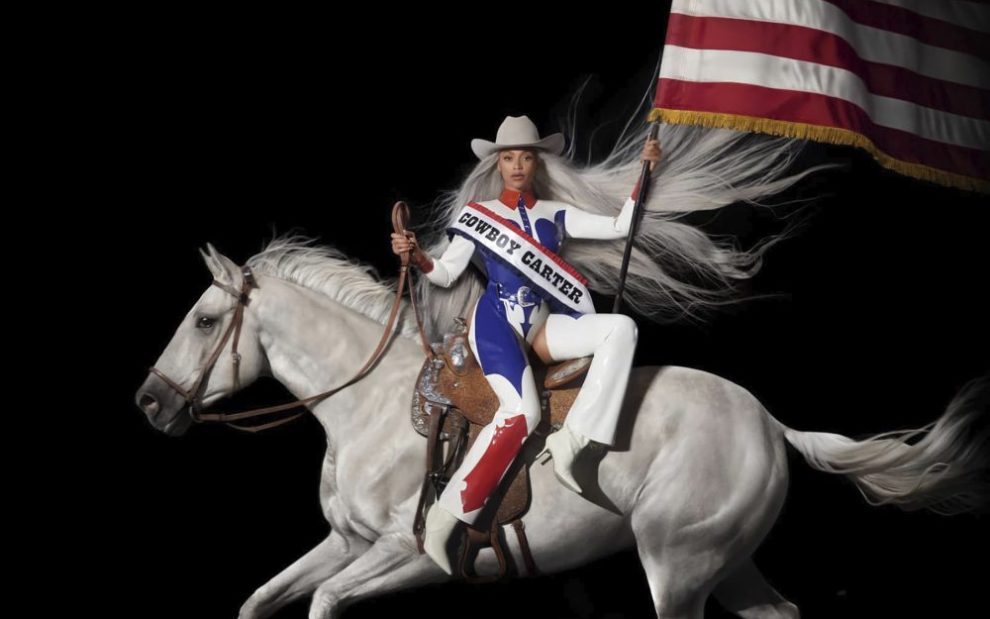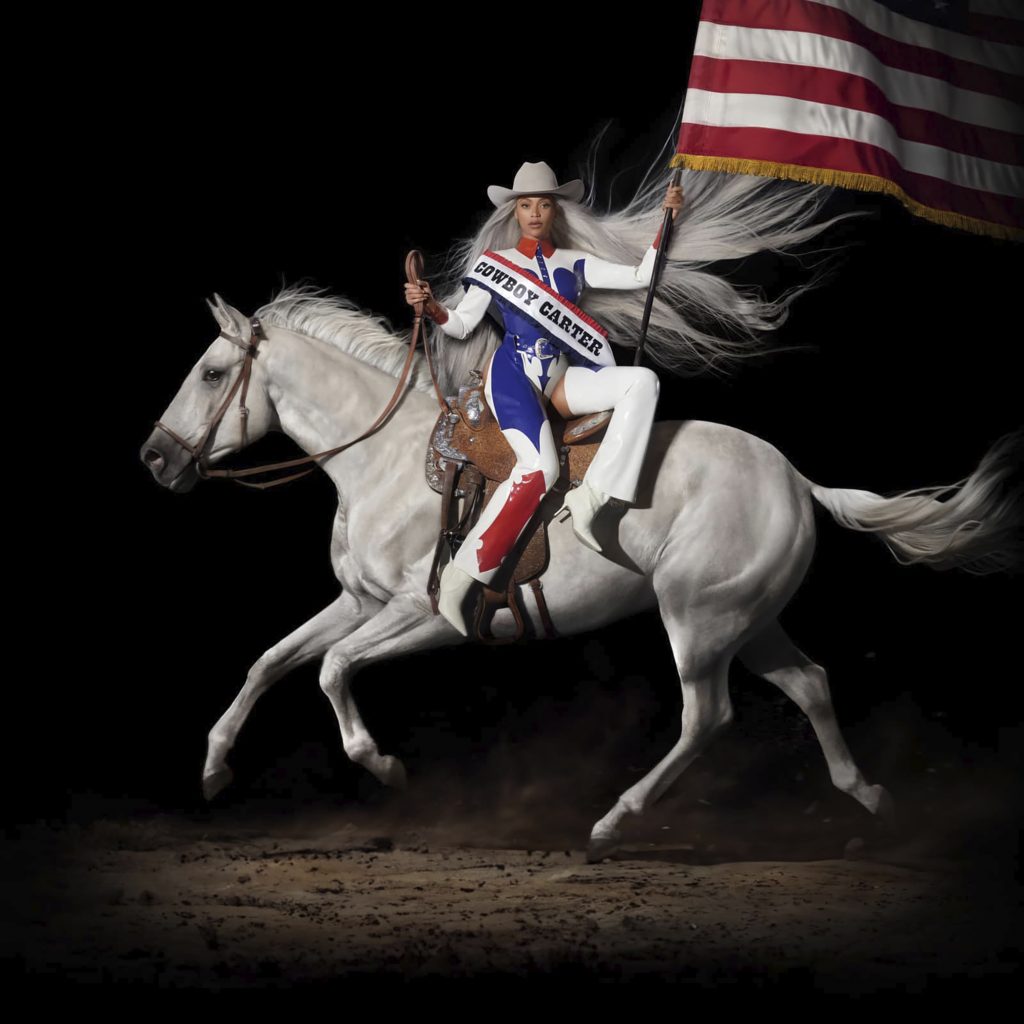Cowboy Carter
Beyoncé (Columbia Records, 2024)
Beyoncé is one of the few artists in popular music today who makes albums that aim for the heft and significance of the Great American Novel. But she’s done it again with this sprawling 27-song, 79-minute, two-record set that can be shelved alongside such landmarks as Stevie Wonder’s Songs in the Key of Life, if not the likes of Invisible Man.
As everyone who cares knows by now, this record is not really Beyoncé’s “country” album. But it definitely and deliberately has strong country-identified elements in its musical palette. “Texas Hold ’Em,” the first single, is a legitimate contemporary country radio hit, even if country radio had to be shamed into playing it. There are spoken-word credits for country legends Dolly Parton, Willie Nelson, and the lesser-known Linda Martell, the first Black woman to play the Grand Ole Opry. Then there’s also Beyoncé’s version of Parton’s “Jolene” and “Sweet Honey Buckin,’ ” which lays a hip-hop track over the foundation of Patsy Cline’s “I Fall to Pieces.”
American musical culture, and American race and class dynamics as we know them, really began in the earliest colonial times when African banjo players and British Isles fiddlers worked side-by-side as indentured servants in the tobacco fields and made music at night. The genres only started when the planters made the Black servants into slaves and the white servants into hillbillies.
What Beyoncé is doing with this music is summed up in the album cover. She’s dressed like a rodeo queen on a white horse, holding an American flag. The “country” here isn’t a pop music genre, it’s our dis-United States, and she’s doing what the greatest Black artists have always done, laying claim to the whole American story and asserting their central role as its unifying theme.
This article also appears in the June 2024 issue of U.S. Catholic (Vol. 89, No. 6, pages 38). Click here to subscribe to the magazine.
Image: Beyoncé
















Add comment